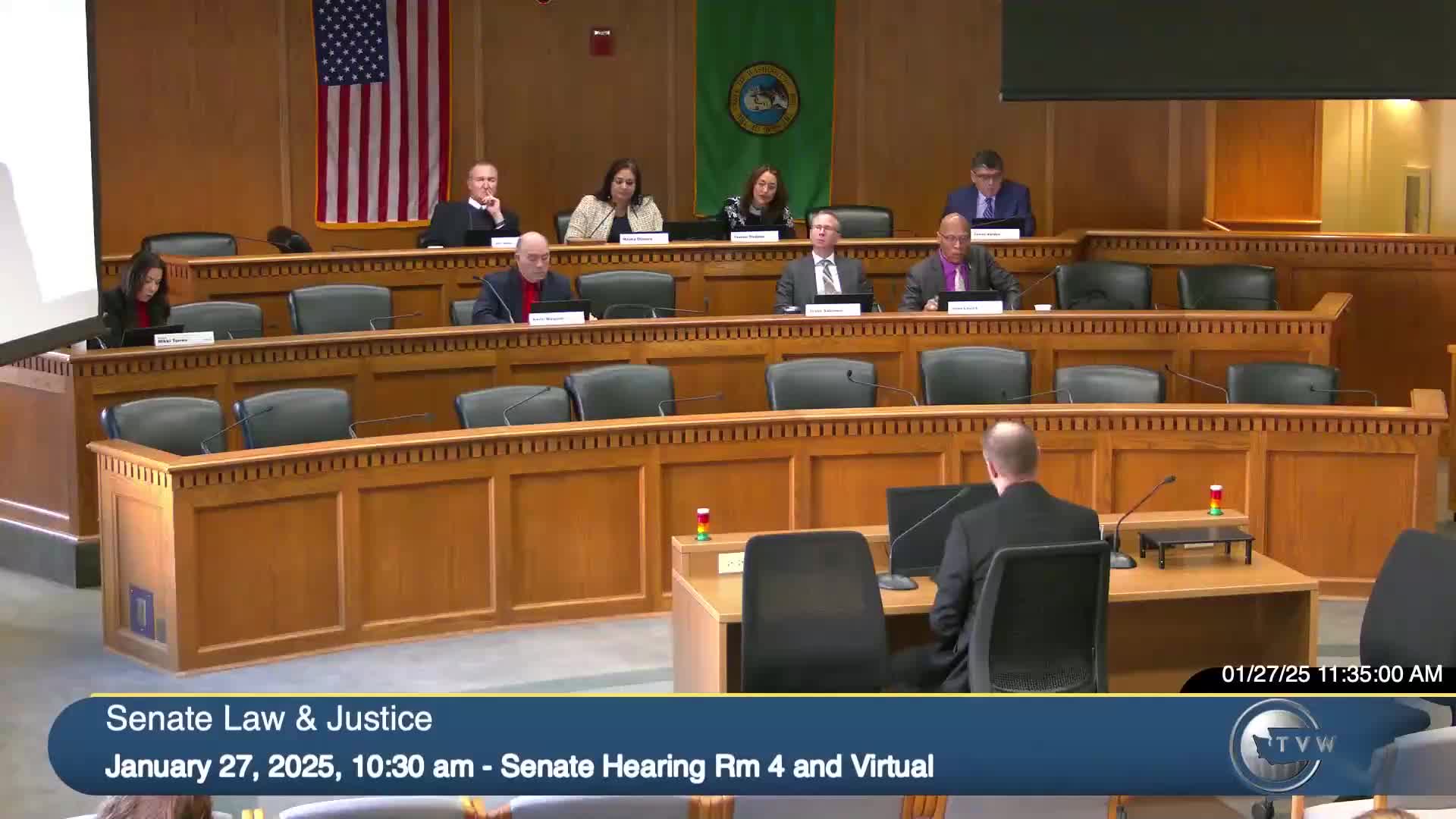Bill would make driving 30+ mph over speed limit reckless; prosecutors suggest revisions
Get AI-powered insights, summaries, and transcripts
Subscribe
Summary
Senate Bill 5238 would add a per se reckless-driving provision for drivers intentionally exceeding posted speed limits by more than 30 miles per hour; sponsors said it targets chronic extreme speeders while prosecutors recommended technical changes.
Senate Bill 5238 would expand the existing reckless-driving statute to include driving intentionally more than 30 miles per hour above a posted speed limit. Patrick (staff) briefed the committee that reckless driving is currently a gross misdemeanor punishable by up to 364 days’ imprisonment and a fine up to $5,000, and that conviction carries a driver's-license suspension of at least 30 days.
Senator Ron Mazal, prime sponsor, said the bill targets chronic extreme speeders who create high-risk situations on highways. "When I talk to the state patrol, they're catching people who are exceeding 30, 40, 50 miles an hour over the speed limit," Mazal said, adding that officers report cases where charges are reduced in court to excessive-speeding tickets.
Amy Friedheim, chair of the felony traffic unit at the King County Prosecutor's Office, testified with technical recommendations. Friedheim told senators that the mens rea word "intentionally" creates a high bar that prosecutors may not be able to prove: "If you're going to make a per se prong, then take out the word 'intentional.' Lower the per se speed that triggers reckless driving to 20 miles per hour or over the posted speed limit." She also recommended courts be allowed to order speed-limiting devices as a pretrial or probation condition to reduce recidivism.
Senator Mazal said his intent was to give law enforcement a clearer statutory basis to charge extremely dangerous speeding as reckless driving. The committee did not record a final vote during the hearing. Staff and prosecutors discussed potential statutory adjustments to address proof standards and enforcement effectiveness.
